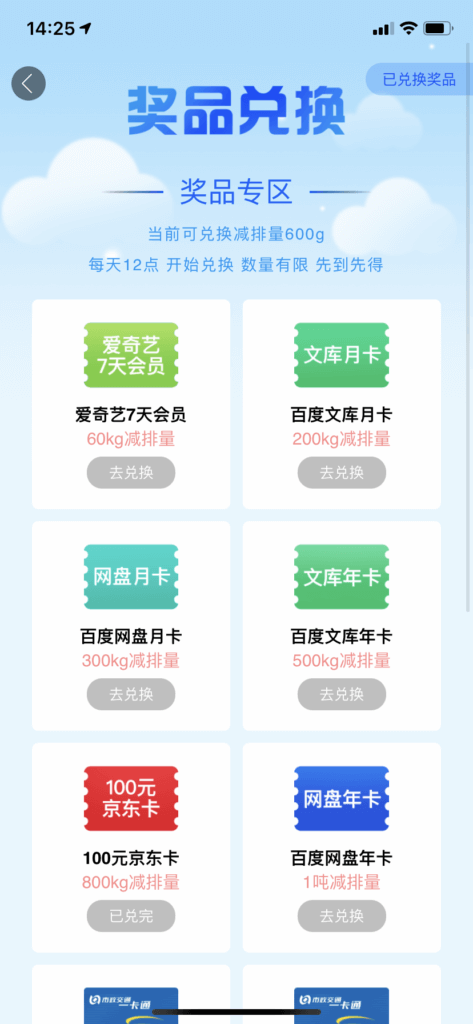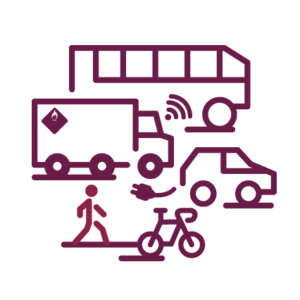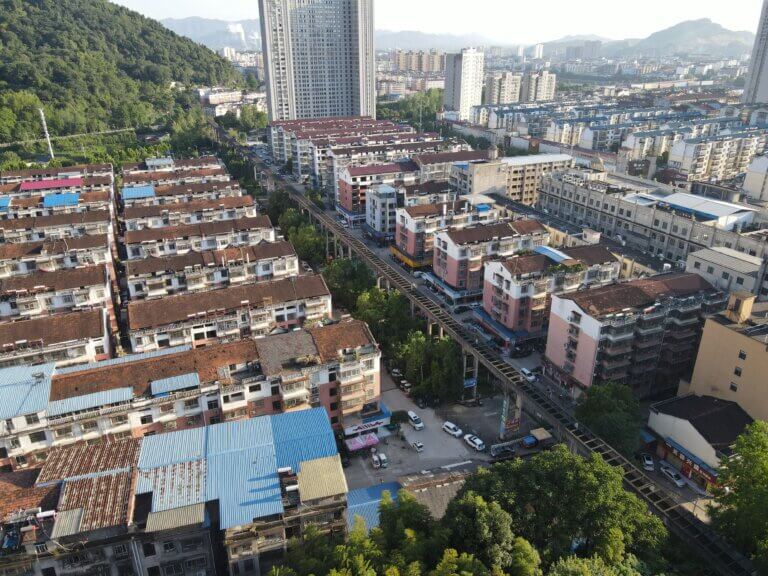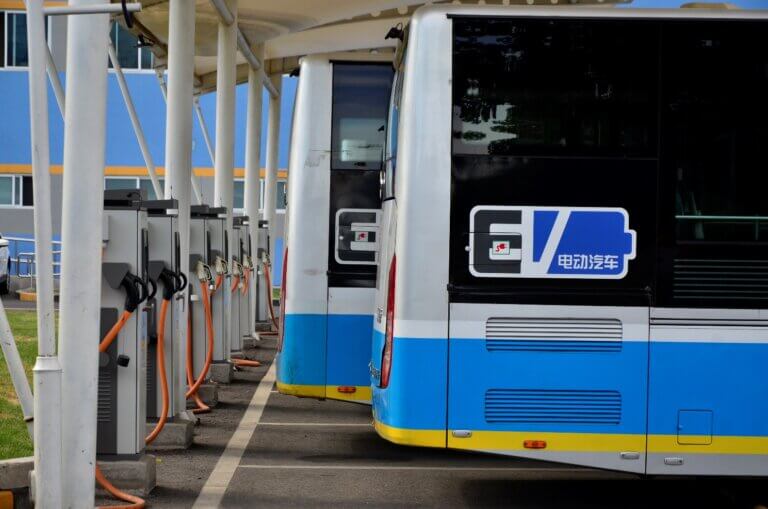The promotion of climate-friendly transport and mobility is crucial to achieve the targets of 2030 carbon emission peaking and 2060 carbon neutrality in China, which were recently announced by Chinese president Xi Jinping. In particular, the sustainable integration of new mobility services such as free-floating bike-sharing or ride-hailing with existing public transport is key to efficient, convenient, and climate-friendly urban transport systems. Mobility-as-a-Service (MaaS), a concept which aims at promoting ecosystems, facilitating the integration of all transport services into a single mobility platform, is a promising solution to reach this goal. In the Outline for Building China’s Strength in Transport, a top-level policy for the long-term development of China’s transport sector, which was released in September 2019, the aim of the promoting the integrated development of MaaS in China was emphasized. Following the set direction, now more and more Chinese cities are implementing MaaS pilot projects.
The Beijing Municipal Commission of Transport (BMCT) and the Beijing Municipal Ecology and Environment Bureau joined with Amap (Gaode Maps) and Baidu Maps to launch the “MaaS Mobility for Green City” initiative at the 6th World Metropolitan Transport Development Forum of the 2020 China International Fair for Trade in Services in September 2020. The introduction of carbon credit inclusive incentive scheme for green mobility based on Beijing’s integrated green mobility service platform (MaaS platform) is the first in China to encourage individuals to participate in green mobility through this system. When using green travel modes such as bus, metro, bicycle, or walking, while also using the Amap or Baidu Maps applications for route planning and navigation, the users can obtain carbon credit and redeem it for a variety of rewards.
In November 2019, Beijing launched China’s first MaaS platform, aiming to provide residents with a one-stop travel service that includes smart routing, full navigation, and green incentives. The platform has integrated travel data for public transport modes, such as bus, metro, or suburban railway, as well as for active and shared mobility, such as walking, cycling, and ride-hailing. It provides various functions, such as bus arrival forecast, information on carriage crowding, or reminders for transfer and disembarkation. The green travel carbon credit incentive and trade mechanism is a further expansion of the MaaS platform services, an attempt to promote green mobility from a conceptual proposal to incentive-based guidance, and to facilitate a substantial shift in travel behaviour.
How does it work?
Residents who would like to participate in this initiative need to register with Amap or Baidu Maps to obtain their personal carbon credit account. Through the Amap or Baidu navigation system, users who choose a low-carbon form of mobility, such as walking, cycling, or public transport, will automatically be rewarded carbon credits based on their travel distance, which they can collect within 7 days. The collected carbon credit could be used for public welfare, such as donating credits for the planting of trees and supporting philanthropic activities, and could also be redeemed for public transport coupons for charging the Beijing Municipal Administration Traffic Card, shopping vouchers, cloud- and video-service memberships, and other rewards within the Amap or Baidu Maps service and applications environment.
Amap and Baidu Maps will collect the redeemed carbon credits and trade them off at the Beijing carbon trading market after auditing by relevant authorities. The carbon credit gained from green mobility choices is calculated according to the travel mode and mileage of the respective user, and is determined according to the method and corresponding emission factors given by the “Beijing Low Carbon Travel Carbon Emission Reduction Methodology (Trial Implementation).” It corresponds to the carbon reduction achieved by users choosing a low-carbon form of transport over individual motorised travel, such as driving a car or ride-hailing. Take Mr. Wang, who lives near the Yangqiao Station and commutes to a building in Liuliqiao for work, as an example. Upon departure, Mr. Wang turns on his navigation app (Amap or Baidu Map) to walk 1km to the bus station, swipes his public transport card to take the No. 300 bus for 5 stops to arrive at Liuliqiao Station, and finally rides 1.5km by bicycle to his destination. He has kept the navigation app navigating to be able to calculate the carbon credit along his trip. For these three trips, Mr. Wang could collect carbon credits equivalent to 0.3kg, 2.5kg, and 0.4kg of CO2, respectively.
Mr. Guo Jifu, President of the Beijing Transport Institute (BTI), stated: “The ‘MaaS Mobility for Green City’ initiative has created a new model for a green mobility incentive with multi-modality, high precision, and market-orientation. For the first time in China, it has achieved a carbon credit model covering all green travel modes, including bus, metro, bicycle, and walking. The emergence of the MaaS platform provides technical support for the identification and aggregation of green mobility behaviour among residents, it provides an environment for refined carbon emission reduction accounting, and makes it possible for the green mobility carbon emission reductions of individuals to become part of the carbon trading system. The green mobility carbon trading measure establishes an effective transmission mechanism for the social benefits of green travel and the willingness of the public to participate and signifies a leading example to be promoted across the country.”
Approximately 100,000 of the 3 million registered users of the Beijing MaaS platform have already signed up for the carbon credit scheme led by Amap and Baidu. The BMCT is currently developing a roadmap aiming at the integration of more transport modes and operators into the MaaS platform. The platform is also expected to be widely promoted during the upcoming 2022 Beijing Winter Olympics, with hopes to attract more users to its carbon credit scheme. The scheme could ultimately collect credits equivalent to an estimated 100 tons of carbon per day.
From Mobility-on-Demand (MoD) to Mobility-as-a-Service (MaaS)
The Beijing MaaS platform with its “MaaS Mobility for Green City” campaign is one of the case studies of a research project on the potentials of MaaS for low carbon transport in China, which is currently conducted by the China Urban Sustainable Transport Research Centre (CUSTReC), a research institute of the China Academy of Transportation Sciences (CATS) under the Ministry of Transport of the People’s Republic of China (MoT). The research project was commissioned by the Sino-German Cooperation on Low Carbon Transport (CLCT) project of the Deutsche Gesellschaft für International Zusammenarbeit (GIZ) GmbH, and is expected to be completed in summer of 2021.
The research focuses on the early efforts in China’s transition from MoD services, such as free-floating bike-sharing or ride-hailing, to integrated MaaS. It examines existing approaches to integrating different travel modes into MaaS platforms, particularly combining public transport modes and MoD services, to assess China’s experience in MaaS implementation and identify key remaining obstacles for effective integration and low carbon development.
As part of the research, CUSTReC has been conducting case studies of early MaaS development in several Chinese cities including Beijing, Foshan and Shenzhen, and on the regional level focusing on the integration of urban and intercity travel in the Greater Bay Area (GBA) in South China. Based upon the case studies, the research project will identify key components necessary for the successful establishment and operation of MaaS as key to lowering emissions and promote green travel. The study further examines the administrative structures and existing policies and regulations pertaining to MaaS in China, and will provide key policy recommendations conducive to MaaS implementation and a proposal for a tailored MaaS framework in the Chinese context.
For more information, please feel free to contact us through transition-china@giz.de.








